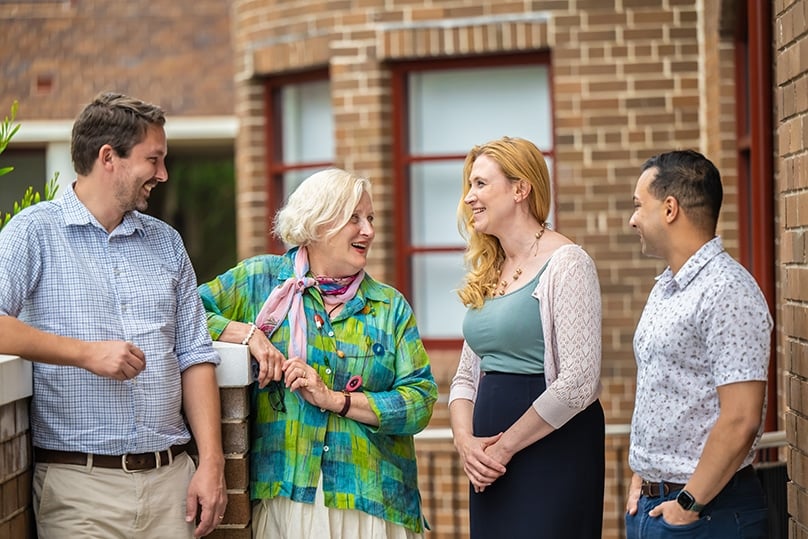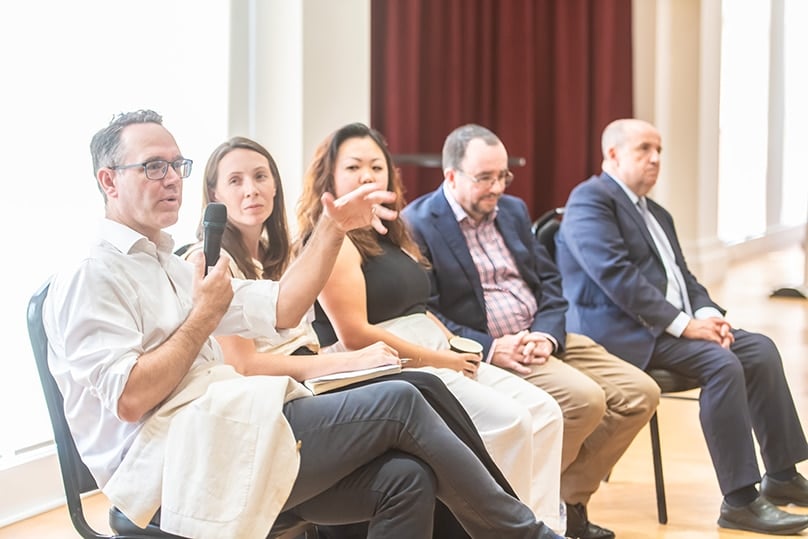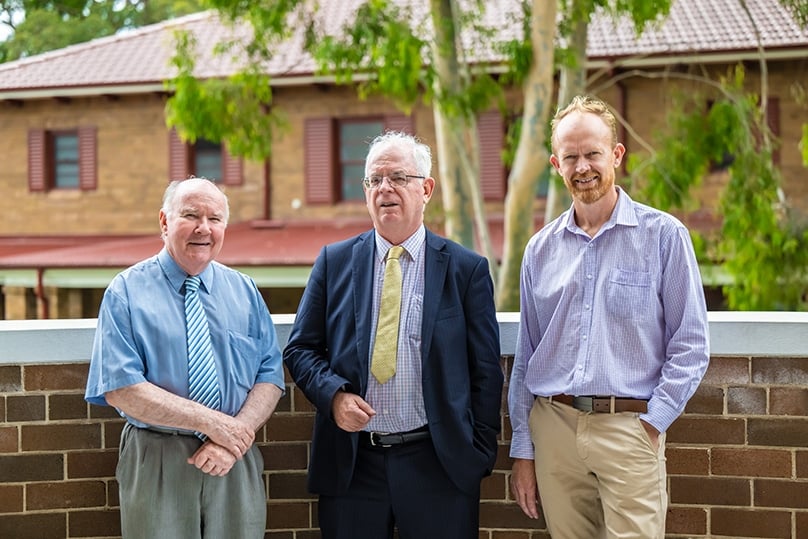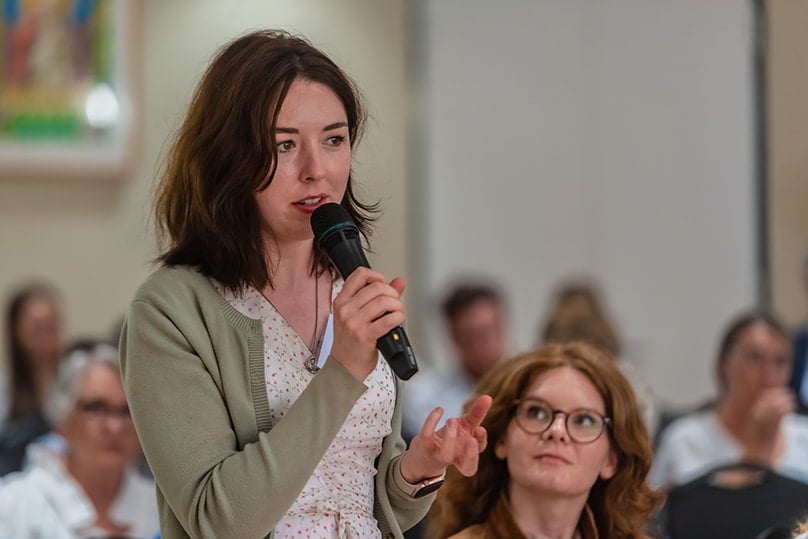
For decades the National Civic Council, led by its charismatic founder B. A. (Bob) Santamaria, was synonymous with lay Catholic action throughout Australia.
Mention either to a person under 40 these days, and you’d be lucky to get a flicker of recognition.
Now a new generation is staging a comeback, returning to Santamaria’s original vision of a flexible, decentralised movement of traditionally-minded lay Catholics determined to bring the church’s teachings to bear on Australian public life.
Initially founded to fight Soviet Russia’s threat to Australian security, the new generation insists the communist threat didn’t disappear with the fall of the Berlin wall, but is now represented by the Chinese Communist Party.
They are also organising against so-called “woke” ideologies and—possibly of most interest to Millennials and Gen Z struggling to afford a home and raise children—threats to the flourishing of the traditional family.
New national president Luke McCormack, 46, was elected in 2023, and told The Catholic Weekly that outgoing president Patrick Byrne has been supportive and amicable about the generational handover.
Without some new blood, the Catholic political organisation founded by Santamaria to prevent a communist takeover of Australian trade unions in the early 1940s was on the way out.
McCormack admits that in today’s vastly different cultural landscape, when both parish and union membership is in decline, the NCC has struggled to engage younger generations in the way it once did.
“In the last few decades you’d almost describe it as a legacy organisation that’s done a full life cycle, where Generation X and younger never really turned up and attached themselves in great numbers to the movement,” he said.
McCormack and former president Peter Westmore—who took over from Santamaria after the founder’s death in 1998—spoke to The Catholic Weekly during a two-day conference hosted by the NCC with several other supporters at Campion College in Sydney, from 2-3 February.
Westmore said the NCC always strove “to preserve and shape the future of Australia by preserving its democratic values.”

“Certainly the trade union battles were really big right until the 1970s but every generation, every society, every period is different and people who have to face the front lines in a battle have to be the ones to make decisions,” he said.
“But underneath it all there are certain principes which remain fixed and do not change from the time our organisation was formed, and that is the importance, firstly, of our commitment to a genuine, pluralist, democratic Australia.
“That is central, but we have to fight for it.”
McCormack was in his 20s when he stumbled across the church’s social teachings and then “the Movement,” as the NCC was originally called, while studying for a theology degree.
“I thought, ‘Wow, this is a serious deposit of wisdom,’” he said.
Later, visiting the NCC’s Brisbane branch, McCormack was fascinated to see it working on campaigns as varied as helping to support East Timor’s independence to sorting out quarantine problems for local farmers.
He said the NCC pursues a broad social justice remit while avoiding the extremes of left and right—as well as “the woke stuff.”
With a full-time equivalent staff of around 10 people plus volunteers, he sees the strength of the NCC in its flexible, decentralised model and relationships with like-minded Catholics and organisations.
“Traditionally there was lots of collaboration, particularly with Catholic clergy. But things just got too hot there in the 1950s with the split in the Labor party. In a sense we’re probably only just recovering from that,” McCormack said.
“My hope would be that the laity and the clergy spend a bit more time on the social teachings—the Bible in one hand, the newspaper in the other—so that we’re preparing and forming our people to be better guided on how to confront challenges in their lives.”
Melbourne-born Santamaria was the young assistant director of the National Secretariat of Catholic Action, an organisation formed under the auspices of the Australian Catholic Bishops, when he decided to form a new body of lay Catholics with support from Melbourne Archbishop Daniel Mannix.

Known as the Catholic Social Studies Movement, or simply “the Movement,” it recruited thousands of people and caused the 1955 split of the Labor party, and formation of the Catholic-heavy Democratic Labor Party.
Formed during the height of Cold War political intrigue, there’s still a whiff of the NCC’s cloak-and-dagger past in the organisation today.
One of its strengths, as well as a cause for criticism, was Santamaria’s talent for conducting much of the Movement’s work behind the scenes.
McCormack said that its membership today is still activity-based, meaning it has no financial members on its books, and that its work is led by the best intelligence it can gain that sheds light on Australia’s best interests and its place in the world.
The NCC seeks to shape public policy on cultural, social, political, economic and international issues, while adhering to five “primacies”—the family; opposition to monopolies and excessive centralisation in agriculture, business, government and unions; pro-life protections; patriotism; and Judeo-Christian values.
Speakers at the 3 February “Democratic Conference” included The Australian’s foreign editor Greg Sheridan on gaps in Australia’s regional security, and the Archdiocese of Sydney’s Monica Doumit on authentic womanhood, and how to support young women.
Campion lecturer Dr Stephen McInerney spoke on the power of integrated models of education in the pursuit of truth, while McCormack discussed Australia’s low birth rate and canvassed policy ideas to support young families in purchasing a home and raising children.
The NCC’s best bet to recruit the next generation is the Thomas More Centre, formed in Sydney in 1989 to form Catholic doctors and other young professionals in the church’s intellectual tradition.
Relaunched by Dr Anna Krohn, Catholic Weekly contributor and its new executive director, it runs regular in-person events, an online newsletter and a growing social media presence.
“The centre is about formation and community-building, a safe place to work out how to be a good Christian in your profession and local sphere, and how can you help make a just society without being pressured to be involved in a political campaign,” explains McCormack.
“From there, I think we can build something, though it might take a while.

“The last two decades has seen much more political involvement through our friends at the Australian Christian Lobby and we’re happy to see that, but we’re also concerned that there’s a gap for young Catholics in Australia where they don’t quite have access to the richness of their tradition that is on offer for them.”
Krohn said the centre drew large crowds of young adults when it began in 1989.
“So we saw there was a real need and after a couple of years Cardinal Pell, then Bishop Pell, agreed to be its patron. From 1991 until he moved to Sydney he was the lynchpin and a great supporter.”
Krohn says it lost impetus and was effectively displaced by benign competition from diocesan agencies, with the burgeoning popularity of World Youth Day and diocesan, parish and other youth ministries from the late 1980s—the model now commonplace in Sydney today.
That’s in no small part due to the willingness of Cardinal Pell and other bishops to embrace the NCC’s vision in animating young adults for social and political action.
But she sees a need for young Catholic leaders to coordinate their efforts Australia-wide.
“Young leaders need to have a role, and we have to decentralise to be where young people and young families are,” says Krohn.
“They’re in the west of Sydney, west of Melbourne, and places like Albury, Toowoomba, Ipswich, and so we’ve been creating a hub in each of these areas.”
Toowoomba-based Nicole Yap, 23, started working with the NCC and its current affairs magazine, News Weekly, as an intern after finishing her journalism and international relations degrees in 2021.
“My Catholic faith is the basis for my values and I wanted to work with conservative or faith-based media as opposed to secular media, because I think media is a powerful tool for good that can really rejuvenate the culture,” she said.
McCormack agrees: “We want to help form future leaders who feel well loved, in other words they’ve got a community and a network around them where they feel supported and backed up a bit.”
“Hopefully the Thomas More Centre and the NCC can provide that for people.”
